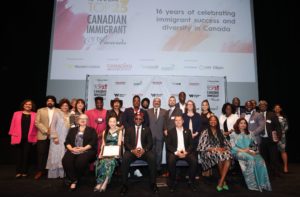Work Permit For Spouse Of Student In Canada: IMPC42Open WP

Emma, a Belgian woman of 34, searches until the wee hours of the morning. Her spouse just began a doctoral program at the University of Montreal, and she’s keen to find a way to work in Canada. Emma looks into the “work permit for the spouse of a student in Canada.” She imagines a life where they both thrive in Montreal. However, she must know if she can secure a work permit in Canada. Consequently, she may remain in Canada and care for their finances.
Work Permits for Spouses of International Students in Canada
This guide highlights key policies and procedures from Immigration, Refugees and Citizenship Canada (IRCC). It focuses on the International Mobility Program (IMP) and the specific open work permit category, C42.
As of March 19, 2024, the Minister updated the eligibility. Now, only spouses of full-time graduate and professional degree students can apply. This includes master’s and Ph.D. students as well as medical, law, and engineering program students. Also, those extending their C42 permit could benefit from the current policy regardless of their spouse’s studies.
Eligibility for Work Permits for Spouses of International Students in Canada
Navigating the eligibility for a “work permit for the spouse of a student in Canada” requires understanding precise requirements. Here’s a detailed breakdown.
Genuine Relationship
- Every applicant must prove a genuine relationship with the principal foreign national holding a study permit. Consider submitting additional documents in the following circumstances:
- You have been in a relationship for less than two years, and
- You do not have a common biological or adopted child.
Even if you are in a long-term relationship or have common children, it is wise to include convincing documents (e.g., marriage or children’s birth certificates).
Applications Submitted Before March 19, 2024
Follow the rules before March 19, 2024, for applications up to March 18, 2024.
- Principal must:
- Hold a valid study permit or have provisional approval (for family groups outside Canada).
- Be enrolled full-time at a designated learning institution.
- Be in a PGWP-eligible program and institution.
- Reside or plan to reside in Canada for studies.
- Spouses in Canada must:
- Have valid temporary resident status or be eligible for restoration.
- Be eligible for a work permit within Canada (section R199 or active public policy).
Applications Submitted On or After March 19, 2024
New rules apply to these applications.
- Principal needs:
- A valid study permit or provisional approval (for family groups outside Canada).
- Full-time enrollment in a graduate or professional degree program at a university or polytechnic institution.
- Program eligibility:
- Graduate programs: master’s and doctorate.
- Professional degrees:
- Doctor of Veterinary Medicine (DVM)
- Bachelor of Science in Nursing (BScN, BSN, BNSc)
- Doctor of Dental Surgery (DDS, DMD)
- Doctor of Medicine (MD)
- Bachelor of Law or Juris Doctor (LLB, JD, BCL)
- Pharmacy (PharmD, BS, BSc, BPharm)
- Doctor of Optometry (OD)
- Bachelor of Education (BEd)
- Bachelor of Engineering (BEng, BE, BASc) only
- Applicants in Canada require:
- Valid temporary resident status or eligibility for restoration.
- Eligibility to apply for a work permit from within Canada.
Extending Open Work Permit After March 19
- Those extending their open work permit are eligible under this category.
- The principal applicant must meet the requirements valid before March 19, 2024.
This detailed overview ensures applicants fully understand their eligibility for obtaining a work permit as the spouse of a student in Canada, adhering to the updated guidelines.
Required Documents for Spouse Work Permits in Canada
Understanding the required documentation is key to successfully applying for a “work permit for the spouse of a student in Canada.” Here’s what you need to know, broken down by application date.
For All Applications
Officers must ensure applicants meet study permit conditions. They may request more information or verify document authenticity. Applicants must prove their relationship to the principal applicant. The supporting documents could include the following:
- Marriage certificate
- Birth certificates of children
- Co-habitation documents (joint ownership of a dwelling or lease contract)
- Joint bank accounts
- Official documents reflecting the same address for both
- IMM 5409 or Statutory Declaration of Common-Law Union – Temporary and Permanent Residence for common-law partners only.
- Mutual pictures (official ceremonies, family gatherings, travel history, etc.)
- Insurance policies that show the other person as the beneficiary
- Any other documents that show the genuine relationship
Please note that this list is neither inclusive nor exclusive. Therefore, provide as many documents as you can.
Before March 19, 2024
Applicants need:
- Proof of a genuine relationship
- Evidence: the principal attends a designated learning institution (DLI).
- Confirmation the principal engages in full-time, PGWP-eligible studies at:
- Canadian public post-secondary institutions.
- Quebec’s private or public institutions under specific conditions.
- Canadian private institutions are authorized to confer degrees and enroll in approved programs.
The spouse can’t get a work permit if the principal is in a private program that is not listed.
After March 19, 2024
The documentation requirements extend to include:
- Proof of a genuine relationship
- It’s essential to present evidence that the primary international student is enrolled at a recognized learning institution (DLI).
- They must also supply verification that the principal student is fully engaged in full-time studies within a study program and institution eligible for a post-graduation work permit. This includes attendance at:
- Any Canadian public post-secondary institution, like a college, trade or technical school, university, or CEGEP in Quebec.
- A Quebec private post-secondary institution adhering to the same standards as its public counterparts.
- A private or public secondary or post-secondary Quebec institution delivering qualifying programs of 900 hours or more, culminating in a vocational studies diploma (DVS) or a vocational specialization attestation (AVS).
- A Canadian private institution with provincial authorization to award degrees, such as a bachelor’s, master’s, or doctorate, but only if the study permit holder is engaged in a program leading to a provincially approved degree. This may exclude certain programs provided by the private institution.
Remember the requirements after March 19, 2024. Should the principal international student study in any private post-secondary program/institution not specified in the list, their spouse or common-law partner cannot obtain a spousal open work permit.
Note: For those extending their C42 work permits, the pre-March 19 documentation rules apply.
Assessing Work Permit Applications for Spouses of International Students in Canada
Here’s how officers evaluate applications.
Verification Process
- Officers check that all eligibility criteria are met when deciding on a work permit.
- They must link the family member to the principal foreign national in GCMS. This link is mandatory.
- Concerns about document authenticity prompt officers to investigate further.
- They ensure that the provided information is accurate and not misrepresented.
Criteria for Principal Foreign Nationals
- The principal foreign national is the couple’s initial study permit recipient.
- They retain this status even during the spouse’s permit assessment.
- Principal foreign nationals cannot switch to a spousal open work permit based on their spouse’s permit.
Further Clarification
- A principal student must maintain their student status if they receive a work permit.
- They can’t obtain a work permit in the C41 or C47 category based on the spouse’s C42 permit.
Authenticity of Relationships
- Officers ensure that marriages or common-law partnerships are legitimate, not just for immigration benefits.
- They seek additional proof if they doubt the relationship’s authenticity.
- The goal is procedural fairness: applicants should have a chance to address concerns before any decision.
- Suspected misrepresentation leads to a formal determination process.
Officers perform these steps with diligence to maintain integrity in the application process. Applicants should prepare for a thorough review to ensure a smooth journey towards obtaining their work permit.
Let us help!
You may book a consultation session to explore your options. If you are facing immigration or visa challenges, please fill out the following form.
Would you please fill out our free assessment form if you wish to visit or move to Canada? We will review it for free, but we will contact you only if we find an opportunity for you. Alternatively, you may book a consultation session. Consultation sessions are not free, but you will receive formal immigration advice from a licensed practitioner.
Al ParsaiAl Parsai, LLM, MA, RCIC-IRB
Regulated Canadian Immigration Consultant
Adjunct Professor – Queen’s University – Faculty of Law
Ashton College Instructor – Immigration Consulting
Author – 88 Tips on Immigration to Canada
Fill our Free Canada Immigration Assessment Form in your language!
 ‘ Credit:
‘ Credit:Original content by www.settler.ca – “Work Permit for Spouse of Student in Canada: IMP C42 Open WP”
Read the full article at https://www.settler.ca/english/work-permit-for-spouse-of-student-in-canada-imp-c42-open-wp/








